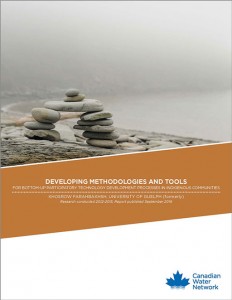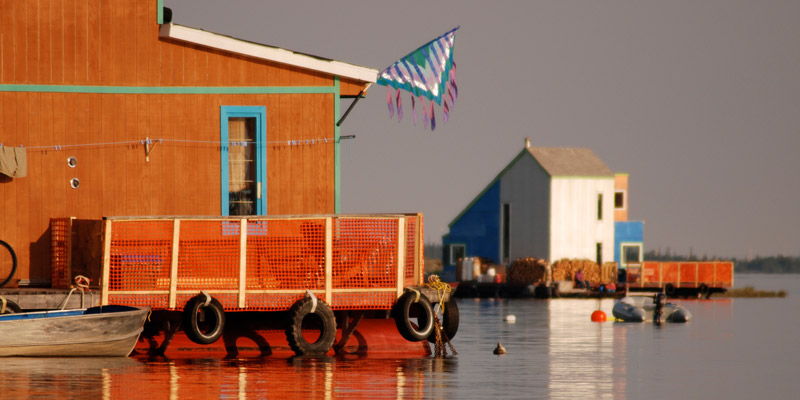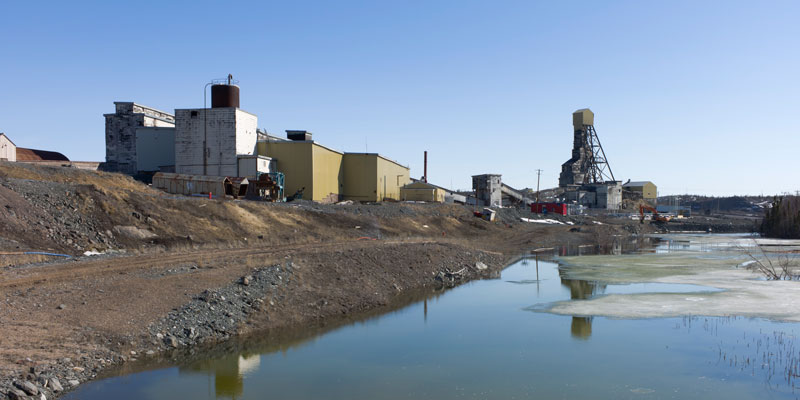Sustainable Wastewater Treatment Systems through a Bottom-up Participatory Technology Development Process - A Case Study in Northern First Nations Communities in Ontario
Principal Investigator - Khosrow Farahbakhsh, Associate Professor, University of Guelph, 2013 - 2014

Challenge
In Canada, First Nations water and wastewater infrastructure is bordering on crisis. A 2011 assessment revealed that 14 percent of community systems are high risk, while 51 percent are medium risk. A further 1,777 homes have no indoor plumbing service whatsoever. A contributing factor to this problem is the lack of on-reserve regulation. Imposed frameworks for water quality, safety, and design are often in conflict with traditional and local knowledge frameworks. Thus, implementation and outcomes of past frameworks have been neither effective nor appropriate for First Nations communities. However, there is great interest in bridging the gap between technical knowledge and traditional or local knowledge from both researchers and Indigenous communities. Communities have identified the need to give ‘voice’ to traditional and local knowledge in decision-making processes.
This project aims to develop a First Nations-driven approach to investigate meaningful participation, capacity building and appropriate technology to support First Nation decision-makers in community development planning that will lead to improved wastewater infrastructure.
Project
The project will be executed in three phases:
- Phase 1 will develop a First Nations-driven approach and methodology through multiple engagement sessions with stakeholders. These engagement sessions will include workshops at both the regional and the community scale, which will help to frame the research inquiry and produce a First Nations-developed research agenda and project methodology.
- Phase 2 will refine and test the methodologies developed in Phase 1, and investigate meaningful participation, capacity building and appropriate technology through three pilot projects. Completed in collaboration with First Nations communities, the pilot projects will involve developing and testing a wastewater management capacity training template; testing processes for integrating locally determined wastewater design criteria into the design process; and testing processes for strengthening operator voices in community infrastructure development.
- Phase 3 will bring together wastewater management experts to support First Nation decision-makers in holistic community development planning. This will involve strengthening the linkages between remote wastewater system end-users and support institutions, as well as establishing a national wastewater management network.
Outputs
Anticipated outputs include:
- Establishment of a national wastewater management network
- Tested processes for integrating local perspectives into the wastewater design process in First Nations communities
- Workshops with local community members, researchers and project partners to allow for input and to discuss research findings.
Outcomes
Anticipated outcomes include:
- Integrated local perspectives will enable operators to have stronger voices in community infrastructure development.
- Additional support for remote wastewater system end users, which has the potential to ultimately lead to improved wastewater infrastructure.
Improved decision-making as communities should be in a better position to respond to proposed regulation and pursue compliance





